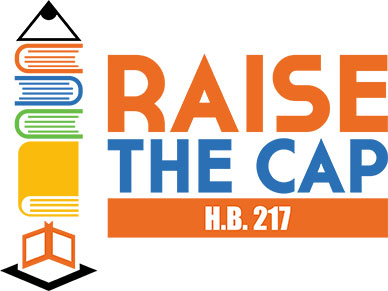
by Eric Cochling | Mar 29, 2017
A large majority of Georgians support expanding school choice in the state, including more than 80 percent of African-Americans and Latinos. The numbers are astounding, and for good reasons.
Georgia’s students continue to struggle in national measures of academic achievement, and the school choice options that currently do exist—like the tax credit scholarship program—are capped at such low levels that there are constantly long waiting lists.
Since it was first passed in 2008, the tax credit program has given tens of thousands of students the opportunity for a brighter future at a private school, but it has never served all the students who have applied for a scholarship. To do that, the program needs to grow.
First, a bit of background. Georgia’s tax-credit law allows private citizens and corporations to receive tax credits for donations to nonprofit Student Scholarship Organizations (SSOs), which then administer scholarships across the state on behalf of needy kids. In 2015 alone, over 13,500 students received scholarships.
The state House recently approved HB 217, which would raise the program’s current cap from $58 million to $100 million in a graduated course of six years, effectively doubling its size. But the Senate removed the slow and steady growth in the program in favor of a one-time increase in the cap to $65 million, hardly meeting current demand. Furthermore, the Senate version of the bill included an extreme cut to the administrative allowance available to the non-profit student scholarship organizations administering the program, which would effectively push smaller organizations out of the market.
Some lawmakers claim that SSOs spend too much on administrative overhead, including activities like fundraising, marketing, and government compliance. Currently, SSOs are limited to keeping a specific percentage of their total proceeds for administration, depending on how much they take in: 10 percent for the first $1.5 million raised, 7 percent for amounts between $1.5 million and $10 million, 6 percent for amounts between $10 million and $20 million, and 5 percent for amounts over $20 million.
This sliding scale acknowledges that as SSOs are able to raise more money, they don’t need to devote as large a percentage of their budgets to overhead. It also recognizes that smaller or start-up organizations still need a slightly higher percentage to be effective and comply with the law.
The Senate substitute to HB 217, backed by Lt. Governor Cagle and Senate leadership, eliminates the graduated administrative allowance in favor of an across-the-board cap of 3 percent. Importantly, most SSOs in Georgia don’t raise enough money to even afford full-time staff under the 10 percent administrative allowance, let alone a 3 percent cap. These organizations would be most harmed by the Senate change, while the largest SSOs would be least affected by the 3 percent cap due to their bigger budgets.
What’s the result? Small SSOs would be pushed out of the market in favor of a handful of large organizations.
Here’s what this scenario would look like in reality: Four SSOs raised less than $100,000 in 2015 and awarded scholarships to 308 students, almost half of whom come from families making less than $30,000 a year. The proposed change would immediately hamstring these organizations by limiting them to less than $3,000 a year for administration, forcing them to close their doors and returning 308 students back to schools that were not serving their needs.
Is that a result we want?
Aside from claims of administrative bloat, supporters of the Senate substitute bill make two more arguments: First, that SSOs should be brought more in line with other nonprofits in Georgia. And second, that the tax credits law should more closely mirror Florida’s program, which caps administrative allowances at 3 percent.
Both claims don’t stand up to even basic scrutiny. In the first place, of Charity Navigator’s 68 top-rated charities in Georgia, only one operates on less than 3 percent of funds for administration—and that organization has total revenues of more than $547 million. So it’s false to claim the proposed 3 percent cap would bring SSOs more in line with other nonprofits.
Secondly, looking at Florida’s law is like comparing apples and oranges. The Sunshine State only has two nonprofit scholarship granting organizations, only allows corporate donations, and has a total program cap of $500 million compared to Georgia, which has more than 20 active SSOs and a statewide a cap of $58 million.
In the end, if the Senate truly wants to bring Georgia more in line with Florida, lawmakers would be better served to raise the statewide program cap to match Florida’s rather than reduce the overhead allowance. If they did, the program would provide school choice to nearly 130,000 students and propel Georgia into the leadership position among states providing families with real options.
With only one day remaining in the legislative session, we hope the Senate and House can come together to agree on a bill that restores growth in the program and hope for thousands of desperate students and families.

by Eric Cochling | Mar 23, 2017
We know that to avoid poverty, it is essential to get a high school diploma, maintain a steady job, and marry before having children (see research from the Brookings Institution and Harvard University on these points). Not only are they key to avoiding poverty, upward mobility and financial stability are closely tied to this family-education-work sequence, as well.
That is why our recent reports are so disturbing. They show that most of our welfare programs are systematically undermining two of the three keys to avoiding poverty and are doing so for some of the most vulnerable groups in our society.
In the first paper, Disincentives for Work and Marriage in Georgia’s Welfare System, we show that many of our welfare programs – alone or when combined –actually penalize earning more and create dramatic “welfare cliffs”.
For many parents on public assistance, receiving a raise or working longer hours can result in dramatic reductions in welfare benefits, often completely erasing what they gain by working more or receiving a raise. Even worse, there are times when earning more money through additional work or a pay raise can result in less income to the family because government benefits are reduced so much all at one time.
When families find themselves in this position, they are effectively locked into dependency, unable to work themselves into self-sufficiency without having to endure sometimes long, crippling periods of financial hardship.
To make matters worse, a similar set of perverse incentives exist when a parent on welfare decides to marry.
For many moms on public assistance for example, deciding to marry a boyfriend or the father of their children can mean that family income is dramatically reduced due to an immediate and steep loss of benefits. In many cases, the disincentives to marriage only go away if the potential husband is earning much more money than would be expected or likely under the circumstances. The result is that these moms must choose between forming a family (and the financial and relational stability it can bring in the long-term) or the short-term financial health of their families.
For a parent in this position, it is easy to see why many would simply choose to stay single and cohabit rather than marry. Unfortunately, research also shows that cohabiting couples struggle with relational instability in ways that married couples do not, so the welfare system ends up encouraging people to enter into relationships that are less likely to last and less likely to provide the stability that would allow them to escape poverty.
While the welfare system was not intentionally designed to work this way, it is unjust nonetheless. If it worked as it should, the system would encourage work and family formation at every turn – as the surest antidotes to poverty.
That is why in our next report, we will be setting out a suggested set of reforms that the state and federal governments can adopt to reform the system in a way that creates a sustainable safety-net that encourages the behaviors that we know are needed for individuals and families to escape and stay out of poverty. We will also be providing a plan for a how a state can implement these reforms on the ground if it chooses to take on reforming the system.
If you want to see how the welfare cliff works for different family types and in each of Georgia’s 159 counties, visit www.welfarecliff.org.

by Eric Cochling | Feb 1, 2017
National Marriage Week will be celebrated next week, just in time for Valentine’s Day. The celebration is now in its eighth year and seeks to foster collaboration around the country to “strengthen individual marriages, reduce the divorce rate, and build a culture that fosters strong marriages.”
The Marriage Week campaign website cites to tons of research on the many benefits of marriage and they have provided a list of events taking place in Georgia next week to celebrate marriage.
At GCO, we believe marriage is indispensable to the creation of healthy families and a stable society. That’s why we encourage you to love your family, teach your children to value marriage and the commitment it requires, and to take part in next week’s celebration.
If you want to strengthen your own marriage, check our Healthy Families Initiative and the resources we offer there.

by Eric Cochling | Jul 18, 2016
Something happened in College Park Wednesday night that hasn’t really garnered much attention but should be front-page news. Thanks to the College Republicans at Morehouse College, I was able to participate in a panel* focused on how to constructively respond to recent police shootings of black males and the violence and protests that have followed.
Diego Aponte, President of the Morehouse College Republicans, said it best when he said that, while protests are necessary at times to raise awareness of a problem that’s going unaddressed, the real question is whether we know what can and should be done to solve the problem.
While much of the discussion centered around ways the public can hold police officers accountable for their actions and how police can more effectively engage with the communities they serve – through things like actually living in the community or regularly interacting with community members – a significant amount of time focused on the systemic problems that are limiting opportunities for young African-American males.
Because of our work at GCO, the topics that kept coming up were not new to us – lack of a quality educational options, limited access to employment, and epidemic levels of family instability. Each problem, in its own way, chips away at the ability of an individual to succeed in life. Together, they can virtually insure that a person experiences poverty and all of the social pathologies – including crime – that come with it.
After a discussion that continued for the better part of three hours, a group of us agreed to come together again, but this time for the express purpose of plotting out the concrete actions we must take to change the status quo in Georgia on these issues.
Like a lot of the people I talk to, I am very worried for our country on many fronts. That said, the discussion that took place last night gives me hope that we still have what it takes – the intelligence, the candor, the faith, and the goodwill – to turn things around.
Many thanks to Leo Smith for the invitation to take part.
*Other panelists included Douglas County Solicitor General, Matthew Krull; Georgia GOP Director of Minority Engagement, Leo Smith; GAGOP First Vice Chairman and former Police Officer, Michael McNeely; Douglas County Police Chief Gary Spark; Retired Law Enforcement Trainer Darrin Bell; Conservative Talk Show Host and Political Commentators, Shelley Wynter and Attorney Robert Pattillo; Morehouse College Republicans Chairman, Diego Aponte; Spelman College student leaders, and Pastor Joel L. Trout.
by Eric Cochling | May 10, 2016
On April 27th, Governor Deal signed into law the most recent round of criminal justice reforms in Georgia. Senate Bill 367 enacts many of the recommendations of the state’s Council on Criminal Justice Reform.
Among the reforms are a number that will improve the ability of returning citizens to obtain employment, a key to reducing recidivism, including:
– Allowing first-time offenders to meaningfully shield their criminal record under the state’s First Offender Act,
– Providing greater access to occupational licensing, provided that the offense was not reasonably related to the license being sought,
– Reinstating driver’s licenses for those convicted of drug-related offenses that did not involve a motor vehicle,
– Expanding funding for Parental Accountability Courts that are problem-solving courts designed to reduce incarceration and constructively encourage parents to support their children. See our 2015 report on PACs here.
GCO is pleased that the reforms included recommendations we first made in 2013.



